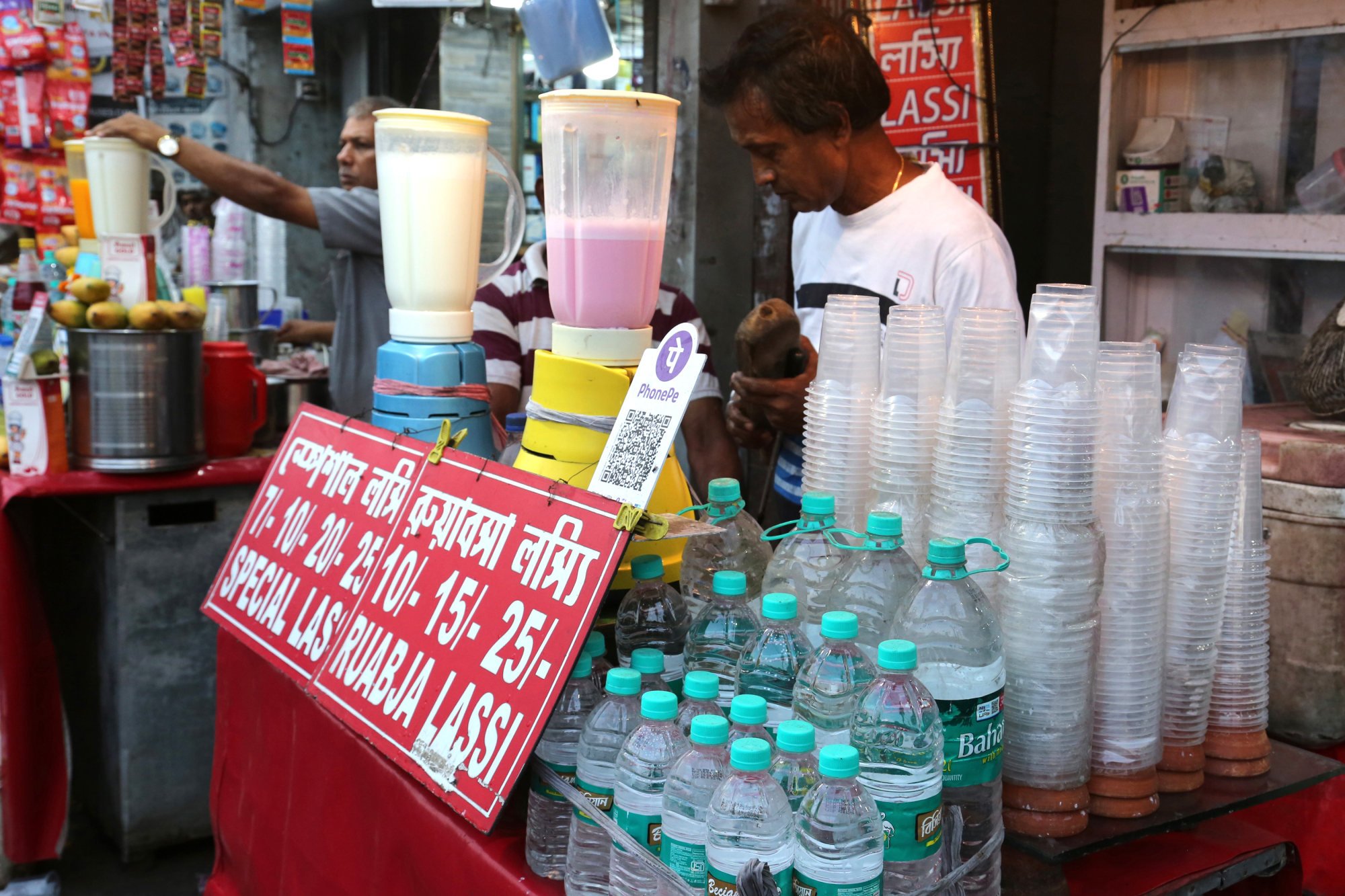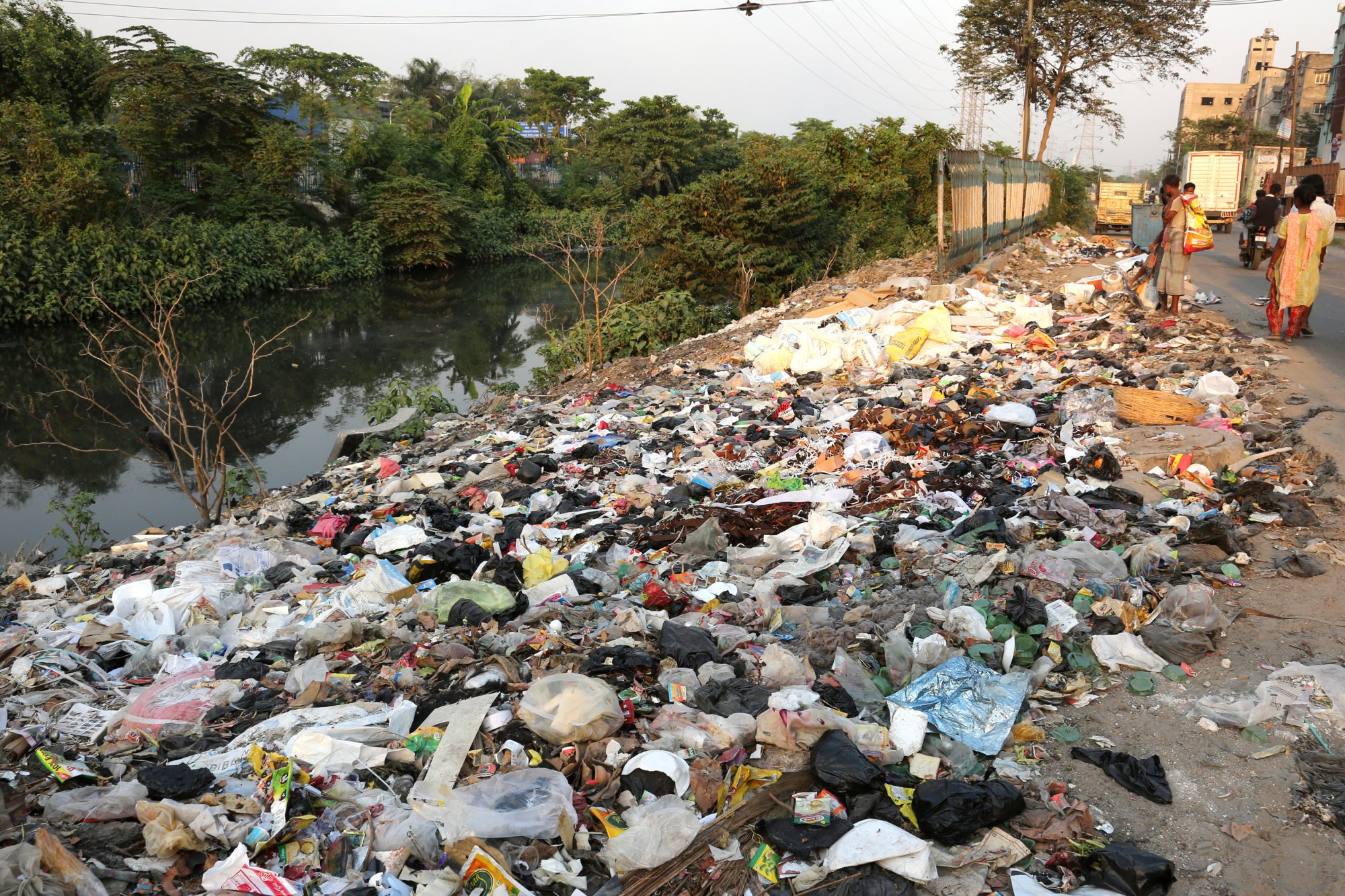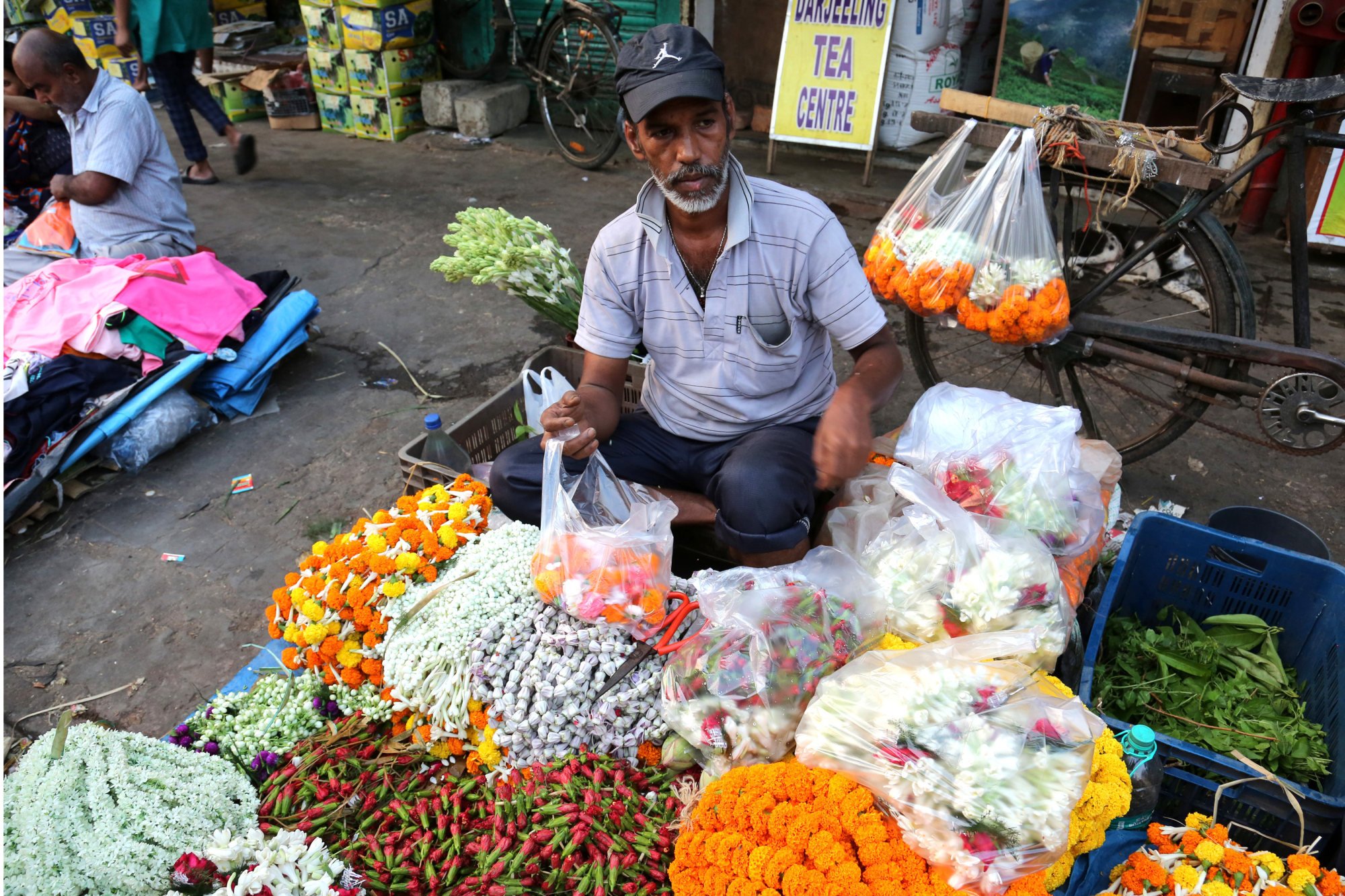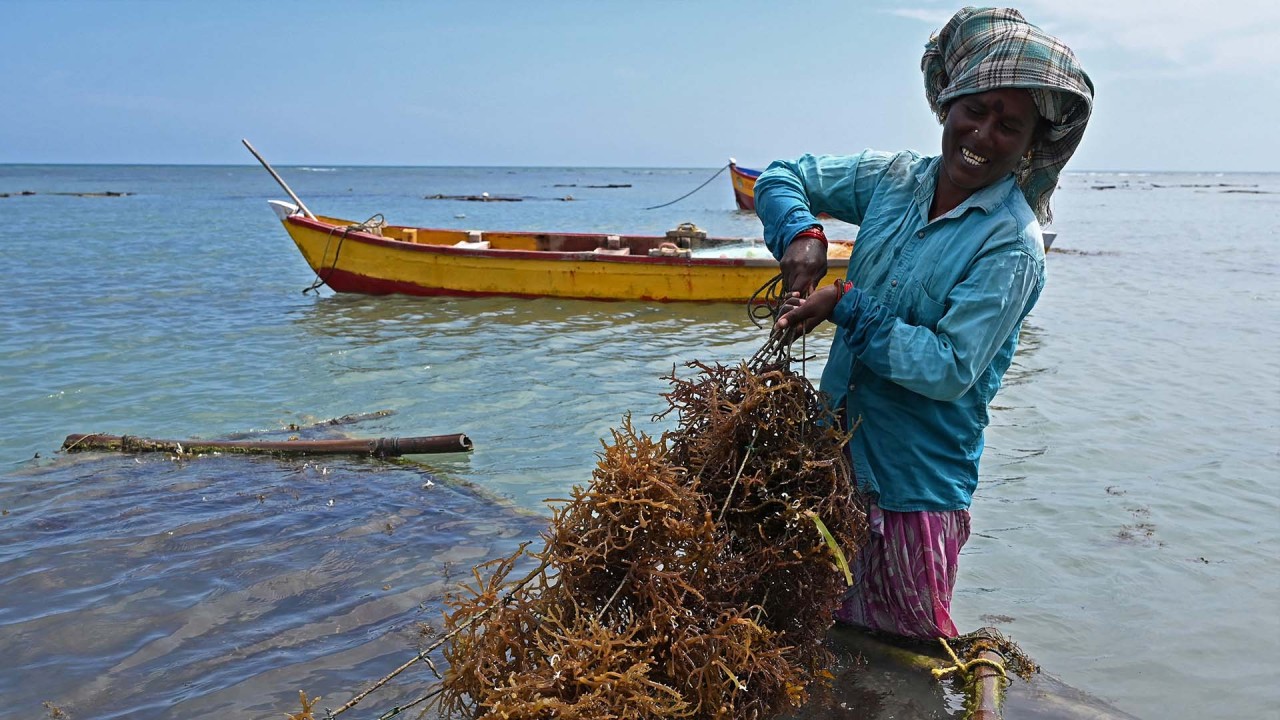
India banned single-use plastics almost 2 years ago. Did it work?
- India banned single-use products such as plastic bags, cutlery, straws, food packaging on July 1, 2022 but such items remain widely in use
- For the law to work, analysts suggest a sustained implementation strategy and better availability of economically feasible non-plastic substitutes
A nearly two-year ban in India on single-use plastics (SUP) has failed to stem rampant proliferation and manufacturing of such items across the country, analysts say, putting the blame on the authorities’ “weak enforcement on the ground”.
SUP products such as plastic bags, cutlery, straws, food packaging, and disposable water bottles were outlawed by the government from July 1, 2022.
A senior official at the Federal Agency of Central Pollution Control Board in October 2022 admitted that the measure did not have the desired effect as SUPs, including a banned grade of carry bags, are still circulating in the low-end section of the economy.
Analysts say lax supervision and a reluctance across cost-sensitive small businesses to embrace non-plastic alternatives have made the law toothless in a country that generates about 5.5 million tonnes of SUP waste annually, the New Delhi-based non-profit Centre for Science and Environment (CSE) said in a February report.
Can Bangladesh’s garbage-strewn capital turn its excess waste into an asset?
“During the first few months of the ban, actions were taken for non-compliance. Later, the authorities stopped being as watchful,” said Priti Mahesh, chief programme coordinator of environmental NGO Toxics Link in New Delhi.
The regulation could have been successful if different state officials had rolled out a sustained implementation strategy and economically feasible non-plastic substitutes were available, she said.

India – the world’s third-largest producer of SUP waste, according to the CSE report – banned the production, distribution, stocking, and sale of 19 items from the SUP category.
The government in 2021 banned the use of SUP carry bags thinner than 75 microns and last year banned similar products thinner than 120 microns.
But both of these products remained available across the country, which Toxics Link’s Mahesh attributed to the “failure to support the alternate market”.
“Non-plastic substitutes are usually much more expensive, and therefore businesses – particularly small and medium enterprises which, at times, cannot afford the extra costs – resist the shift,” she said.

A 2017 study by researchers from the University of Georgia and the University of California in Santa Barbara found that the world has produced 8.3 billion metric tonnes of virgin plastics since the early 1950s.
As of 2015, most of the waste generated globally ended up either in landfills or the environment, with just 9 per cent sent for recycling, the study said.
“Most plastics don’t biodegrade in any meaningful sense, so the plastic waste humans have generated could be with us for hundreds or even thousands of years,” Jenna Jambeck, study co-author and associate professor of engineering at the University of Georgia, said.

Analysts also pointed out loopholes in India’s SUP ban, saying it was “neither comprehensive nor holistic” as the rule did not cover many types of related items and the barred goods accounted for less than 3 per cent of the total plastic waste generated nationwide.
“While select SUPs, such as cutlery and plates have been banned because of their high littering potential, sachets and plastic water bottles have not been banned despite the same characteristics,” said Satyarupa Shekhar, a plastic pollution activist.
She suggested including the country’s petrochemical companies, which produce virgin polymers that end up for SUPs, in the banned list.
Australian shows how to keep dirty Manila river clean but can it stay pristine?
Siddharth Ghanshyam Singh, programme manager at New Delhi-based non-profit research group Centre for Science and Environment, said the move to disallow SUPs was not foolproof and “half-heartedly enforced because it was designed to fail”.
“It is lopsided because it favours giant fast-moving consumer goods companies under the garb of lack of alternatives and fails to create a level playing field for micro, small and medium enterprises,” Singh said.
“The ban applies to items such as plastic sticks, plastic film and polystyrene for restricted applications and specifies thickness requirements for carry bags and banners, which makes it impossible for regulators to enforce.”
Singh said carry bags with a thickness of under 120 microns remained the most widely circulated banned SUP item, which vendors blamed on the lack of viable alternatives.
“Soon after the 2022 ban came through, environment-friendly bags made of paper and other materials arrived. Big shops switched to using them. But small businesses or vendors who number hundreds of millions in the country are still using the banned bags [under 120 microns],” said Shekh Tanzim, a fruit seller in the eastern city of Kolkata.
He added most of these hawkers run roadside shops and could not afford the costlier substitutes.
Some state governments have also gone easy on the federally mandated directive.
“People running small businesses have not faced any problem after the ban came through. They are smart enough, and know how to grease the palms of law enforcement people and keep using the banned carry bags openly,” said grocer Montu Das in West Bengal state’s Kolkata.
“I don’t see any possibility of the use of banned carry bags being stopped any time soon.”
India’s Ministry of Environment, Forest and Climate Change, which issued the SUP ban, has not responded to repeated requests for comment.


